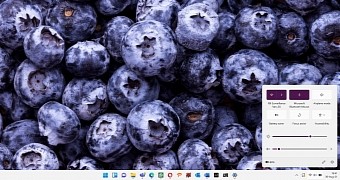Microsoft has already confirmed that only computers are getting Windows 11, and while this decision has been rather controversial, the company has since been working around the clock, trying to figure out if more PCs with older processors could handle the new OS.
And while some small updates to the list of supported processors have been indeed released, Microsoft determined that older CPUs come with an increased likelihood of crashes on Windows 11.
This isn’t necessarily surprising, and Microsoft says one of the reasons is the old driver support that’s particularly troublesome on a modern operating system like Windows 11.
“Maintaining reliability over time is highly correlated with OEM and IHV driver support. The processors supported on Windows 11 are within OEM and IHV support and use modern (DCH) drivers. The move to modern drivers enables drivers and associated software to be installed and serviced in a coordinated manner through Windows Update and provides better mechanisms for tracking driver health,” the company explained.
Increased likelihood of BSODs
The data collected from PCs running builds in the Windows Insider program made it pretty obvious there’s a major risk of BSODs if they run the new operating system.
“The result of this coordination is that system drivers are properly installed and functional after updates, providing a reliable experience when upgraded to Windows 11. From Windows Insider machines, those that did not meet the minimum system requirements had 52% more kernel mode crashes (blue screens) than those that did meet the requirements. Machines that met the requirements provided a 99.8% crash-free experience that is effectively managed by OEMs and IHVs through modern driver update management. Additionally, on unsupported hardware app hangs are 17% more likely and for first-party apps we see 43% more crashes,” it says.
Windows 11 is already in the final development stages, as the OS should be signed off in September and then shipped to the first waves of production devices beginning with October.
The rollout to eligible computers would also continue into 2022.

 14 DAY TRIAL //
14 DAY TRIAL //